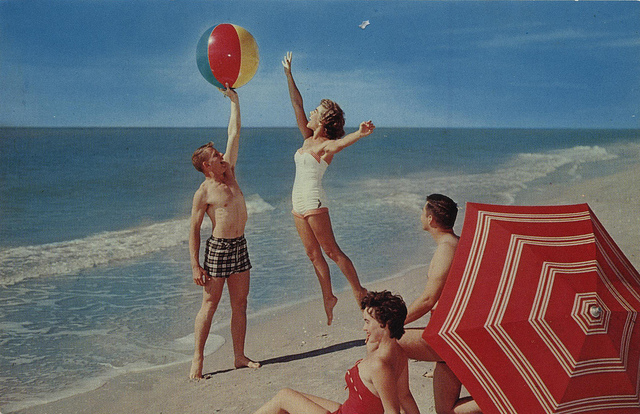The mind is amazing; it can take a beautiful, natural experience and so quickly turn it into evidence that we are somehow inadequate.
Here is what happened to me recently.
My family and I are on an extended warm holiday, and after a couple weeks of lying on the beach not quite comatose, but close to it, we headed out on a four-day hiking trip to a dormant volcano.
Putting on a pack and going into the mountains felt freeing after many hours logged driving around in a minivan, finding beaches on which to do nothing.
The scenery was beautiful on the hike, alternating from rainy ferns on steep hillsides to sandy, moonlike landscapes.
Equally as fascinating as the natural environment was the inside of my mind.
As soon as I started walking and felt the lightness of my pack indicating the small amount of food we had brought with us for the hike, I thought, “Maybe I will lose weight on this trip.”
And just like that the whole feeling of the trip turned.
Instead of the hiking trip being about exploring a new part of the world while using my own body to get me there, it became a “self-improvement project” in my mind.
Somehow, I was supposed to come out of the four-day hiking trip different. Not just different, but “better.”
This thought may seem innocuous.
Just a few little words encouraging me to be the best person I can be turned into me focussing instead on the thinnest person I can be.
But beneath these words suggesting that my body could be slimmer was a subtle aggression to my being. These words suggest that the way I am now is not adequate, and that striving to be slimmer would make me a better person.
Like most of our thoughts, this suggestion that losing weight should be a purpose is a passing falsehood, which I immediately decided didn’t deserve my attention.
Moving my body, feeling my legs be sore and my breath quicken, is an end in of itself.
In our culture, exercise has become synonymous with changing our bodies to be sexier or more attractive in some way. Moving our bodies has become goal-oriented, and with this, moving our bodies has become loaded with all types of guilt and a sense of not good enough.
I am always encouraged by our pet dogs and the way they wag their tails and get so excited when they hear the word “walk” or see the leash come out of the closet.
They just love to move.
So do babies and little kids.
They just love to move.
By associating moving our bodies with the possibility of failing (to become thinner or more attractive), we have subtracted something integral from the human experience of our daily life: The pure enjoyment of moving around.
As I am every day of my life, I was immediately grateful for my mindfulness practice. While hiking down two miles of switchbacks at an altitude of 8,000 feet on that misty first day of our hiking trip, I said an internal thanks for the ability to see my thoughts and make a choice.
I saw the thought that I might lose weight. I felt the anticipation of this fictional goal. I felt my energy change as my self-esteem took a little hit. I noticed myself suddenly thinking about how I would eat less dinner and carry a bigger load to make this new weight loss goal a reality.
And then I stopped.
Not stopped walking, but stopped giving this thought line any more of my attention or energy.
I asked myself, is this the direction I want to put my attention, the goal to lose weight on this hiking trip?
The answer was a resounding no.
I wanted to feel my body, be one with my breath, listen to the birds, watch the light change on the hills.
That is what I wanted.
So, that is what I did.
~
Relephant Read:
The Best Affirmation for our Self-Love Journey.
~
Author: Ruth Lera
Editor: Toby Israel
Image: dan.marv/Flickr
~







Read 0 comments and reply